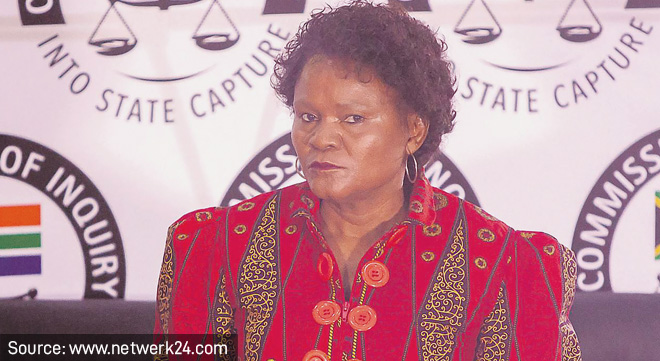The South African Institute of Chartered Accountants (Saica) has removed former South African Airways (SAA) board member Yakhe Kwinana (pictured) from its membership and fined her a total of R6.1 million, following a disciplinary hearing.
Kwinana was an SAA board member between 2009 and 2016. She was also the head of its audit and risk committee.
Saica’s disciplinary committee found Kwinana guilty of 13 of the 14 charges against her. One of the charges was withdrawn. The disciplinary hearing concluded in March.
The committee was of the view that Kwinana “was not a fit and proper individual to be a member of the profession and that she should be excluded from membership of Saica with immediate effect”, the accountancy body said in a statement on 6 April.
The ruling means Kwinana, who is also a former chairperson of SAA Technical (SAAT), can no longer practise as a chartered accountant (CA). She may still be able to practise as an auditor because the Independent Regulatory Board for Auditors oversees that profession.
The disciplinary committee fined Kwinana R500 000 each for 11 of the charges and R300 000 each for two of the charges.
She was also ordered to pay Saica’s costs in respect of the disciplinary proceedings, excluding security services.
“Saica takes all instances of members’ alleged contravention of the Saica Code of Professional Conduct seriously, and all these matters are investigated, irrespective of the nature of the assignment or the individual member concerned,” Freeman Nomvalo, Saica’s chief executive, said.
“Saica members who fail to uphold the highest ethical and professional standards compromise public and private sector institutions and the South African economy.
“Saica is committed to ensuring that members operate in the public interest by taking the necessary steps to ensure a fair and equitable outcome of its disciplinary processes. This step confirms Saica’s commitment to holding all its members accountable, as well as an unwavering focus on serving the public interest, which is the foundation of the chartered accountancy profession,” Nomvalo said.
Zondo questioned Kwinana’s competency
In his report on state capture, Chief Justice Raymond Zondo said Kwinana failed to give any plausible explanation for why, as SAAT’s chairperson and as an SAA board member, it was lawful and appropriate for her to have received payments from an entity, and persons affiliated with it, that was a supplier to SAAT.
“The payments were, therefore, probably corrupt payments because they were made in exchange for decisions, in which Ms Kwinana was involved, that benefited the entity that made the payments.”
Judge Zondo recommended that Saica investigate whether Kwinana “has the requisite knowledge and appreciation of her obligations as a chartered accountant and whether she is suitable to continue to practise the profession of a CA”.
He said Kwinana’s answers to certain questions during her evidence revealed either that “she has no clue about some of the basic obligations that she should know as a CA, or she knew those obligations but dishonestly pretended that she did not know them because it was convenient for her to do so”.
Kwinana denied any wrongdoing in her testimony before the commission.



